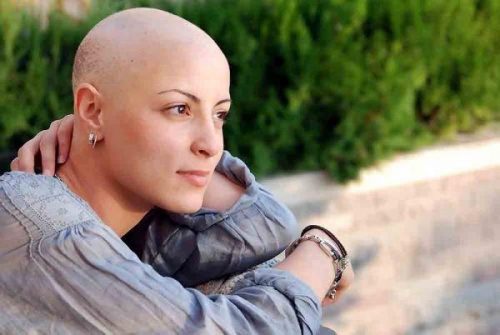Most of us can learn to deal with our emotions, mental health problems, and the changes caused by a brain tumor once chemotherapy and other treatments begin. Brain tumor growth operation is difficult for the body to take, but you can better handle the process with radiation oncologists and cancer treatment.

Learn more about brain tumor treatment here.
Let’s Learn More About Head Injuries And Their Cures
This is a fact for brain tumor patients as well as those who are caring for them during the treatment of cancerous brain tumors.
- It’s not uncommon to feel insecure, puzzled, and scared about getting a brain tumor diagnosis – and it is possible to cope with these emotions.
- Supporting a loved one through brain tumor treatment, which may include radiation therapy such as stereotactic radiosurgery, gamma rays, proton beam therapy, targeted therapy, or other approaches, requires patience. The treatment process can be gradual and challenging, and during this time, it’s important to be patient both with your loved one and with yourself. Offering emotional support and understanding can greatly contribute to their journey toward healing and recovery.
- There are no wrong questions, so don’t be afraid to ask.
- Be open to your family and your medical team to help you keep the health treatment planning on schedule. Your doctor may check on you if you are on track with your schedule.
- One of the treatment options is radiation therapy which can help kill brain tumor cells, destroy cancer cells and kill tumor cells, protect surrounding healthy tissue, blood vessels, and healthy cells, and treat types of brain tumors. There are different types of radiation therapy like surgery radiation therapy and stereotactic radiosurgery. However, given the complexity of these methods, some could still be in clinical trials.
- A different form of whole-brain radiation therapy such as magnetic resonance imaging tests targets brain tumors. External beam radiation therapy and intensity-modulated radiation therapy for parts of the brain, and the effects of radiation therapy can help, according to brain tumor clinical trials.
Note that the side effects of radiation exposure therapy depend on the area of treatment in the brain and spinal cord. Research on experts that are allowed to deliver radiation-only treatment to secure a specific dose of radiation.

Brain Tumor Management And Cure
Dealing With Personality Changes
Anger, confusion, mood changes, and depression are usual symptoms for individuals with primary malignant brain tumors. Personality changes are a result of treating primary brain tumors or simply feeling hopeless. Talk to your physician if you observe these kinds of changes to relieve symptoms from multiple tumors.
Dealing With Behavioral And Cognitive Changes
An expert from the National Cancer Institute explained that there are several program options to treat brain tumors – and the brain tumor itself – can result in many alterations in your cognition and behavior. You could have difficulty with focus, mood, memory, and communication.
Depending on the severity of the case, professionals may recommend brain tumor surgery, targeted therapies, or proton therapy for the tumor-treating fields in the surrounding brain tissue of the affected area. For individuals undergoing conventional internal radiation therapy, a medicine treatment team, emotional and spiritual support, and counseling could also be recommended to help deal with the changes mentioned above. Additionally, cognitive rehabilitation strategies can certainly help as well.

Cognitive Rehabilitation
Cognitive rehabilitation assists you in reclaiming as much of your physical, emotional, and mental capacities as possible.
Compensation methods for brain and nervous system tumor patients help develop other abilities to make up for skills lost from the illness. For instance, exercises to build speech, movement, and vision. When complete recovery is not achievable, compensation can include knowing how to survive memory loss through reminder systems, organizers, and calendars.
Caregivers for brain tumor patients can benefit from compensation strategies or anger management techniques to keep the high level of perseverance necessary.
Coping With Depression And Anxiety From Brain Tumor
Feeling worried about the tumor or the treatment plan is not uncommon, but it still causes every circumstance to be more severe. Frequently, depression comes with anxiety. A treatment or a brain tumor plan can include antidepressants or antianxiety medications, counseling, and relaxation exercises. Communicating your emotions with qualified professionals to relieve yourself of your concerns can certainly help.
- Symptoms of depression in brain tumor patients, such as hopelessness, irritability, mood swings, and difficulty concentrating, are not uncommon and can significantly impact their well-being. In some cases, individuals may resort to self-harm, indicating severe depression. Recognizing and addressing depression is a critical priority in the overall treatment plan for brain tumor patients. It’s essential to provide both medical and emotional support to help individuals cope with these challenging side effects of their condition.
- Symptoms of anxiety in an individual with a brain tumor are restlessness, sweaty palms, a fast heartbeat, and constant fear. If you are worried, then you must talk to someone about it. This is the initial step to reclaiming control over your life.
Dealing With Seizures
Seizures occur when an atypical surge of electrical brain activity leads to an attack. It causes staring, loss of consciousness, or abnormal muscle contractions. Some individuals with brain tumors get to experience several seizures, while others only have one. Seizures are more seen in low-grade gliomas, but they can also happen in most forms of tumors.
According to the National Comprehensive Cancer Network, patients who suffer from seizures that involve consciousness commonly are unable to drive for a certain timeframe. Their duration differs from the guidelines of specific states.
While seizures primarily originate in the brain due to the presence of a tumor, their effects can extend to the spinal cord and other parts of the central nervous system. Those who have several seizures can create a journal to do their own monitoring. List down when they usually occur, what expires during the seizures, and how long they occur. The physician can identify a pattern and offer the best medication to help.

Dealing With Headaches
Headaches are almost always a result of edema, which is a swelling in the brain caused by the brain tumor or the treatment. Steroids may be recommended to decrease the edema, but these can subsequently lead to a range of other problems like seating, agitation, leg fatigue, trouble sleeping, and over-eating. Avastin, a medication used to manage glioblastoma, is also very beneficial in decreasing edema.
Some headaches are linked to nausea, vomiting, or dizziness, which may all be connected to the location of the tumor. The surgical removal of the tumor often alleviates these headaches. Post-op headaches, on the other hand, often disappear after a brief period.
Takeaway
If you need more help treating brain cancer tumors, you can also consider physical therapy and occupational therapy assisted by a therapist or rehabilitation specialists to help you with your emotional and mental health journey. You might also want to join support groups to improve general health while you are on your journey to treat cancer.
Frequently Asked Questions (FAQs)
1. Can An Entire Brain Tumor Be Completely Treated?
2. What Is The Best Treatment For Brain Tumors?
3. How Long Can You Live With Tumors In The Brain?
4. Can A Brain Tumor Be Fixed?
The effectiveness of treating a brain tumor depends on several factors, including its type, location, size, and the overall health of the patient. While some tumors can be effectively treated, others may present more significant challenges, emphasizing the importance of a comprehensive and individualized approach to care, often guided by findings from clinical trials.
5. Why Do People Get Brain Tumors?
Brain tumors, including cancerous ones, can develop for various reasons, including genetic factors, exposure to radiation, age-related risks, and, in some cases, viral infections. Family history and certain genetic syndromes can also increase the risk. However, the exact cause of many brain tumors, including cancer, remains unknown, and they can occur sporadically without identifiable risk factors. Early detection and medical evaluation are crucial for effective management, as most brain tumors are not linked to lifestyle factors and require specialized care.
6. What Were Your First Signs Of A Brain Tumor?
The signs of a brain tumor can vary widely, but common symptoms may include persistent headaches, seizures, cognitive changes, personality or behavior alterations, vision problems, speech difficulties, weakness or numbness, balance and coordination issues, nausea, fatigue, and mood changes. It’s important to note that these symptoms can be caused by various medical conditions, so if you or someone you know experiences any of these signs, seeking prompt medical evaluation by a healthcare professional is crucial to determine the underlying cause and appropriate treatment. Early diagnosis and intervention can be critical for managing brain tumors or related conditions effectively.
7. At What Age Brain Tumors Can Occur?
8. Can Stress Cause Brain Tumors?
9. Is A Brain Tumor A Death Sentence?
10. What Foods Shrink Brain Tumors?
11. How Fast Do Brain Tumors Grow?
12. Which Brain Tumor Is Not Curable?
13. What Are The Risks Of Brain Surgery?
14. What Is The Last Stage Of A Brain Tumor?
The last stage of a brain tumor, often referred to as Stage IV, represents the most advanced and typically incurable phase of the disease. In this stage, the tumor has extensively spread within the brain and may have affected the central nervous system (CNS), including the brain and spinal cord. Patients in this stage often experience severe neurological symptoms and the focus of care shifts to palliative measures aimed at improving the quality of life and symptom management. The prognosis is typically poor, and treatment options are limited. Communication with healthcare providers is essential for addressing the unique needs of patients in this advanced stage, particularly those affecting the CNS.
15. What Should Brain Tumor Patients Avoid?
Brain tumor patients should focus on their well-being by avoiding excess stress, alcohol, tobacco, and maintaining a balanced diet. They should also exercise caution with overexertion, stay hydrated, and protect themselves from infections. It’s essential to communicate all medications and supplements with their healthcare team to prevent interactions and prioritize mental health. Following the treatment plan is crucial for optimal outcomes. Consulting with healthcare providers for personalized guidance is key.
